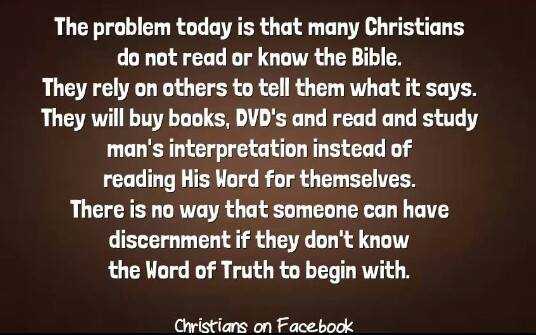Isaiah (28:10 RSV) told us that the Bible is like a jigsaw puzzle: "Precept upon precept, precept upon precept; line upon line, line upon line. Here a little, there a little." And Solomon (Prov. 25:2 RSV) told us that we must find the pieces. "It is the glory of God to conceal things, but the glory of kings is to search things out."
"In the beginning was the WORD ... and the Word was (THE) God (not a separate God. John 1:1), "and the Spirit of God (again, not a separate God) moved on the face of the waters." (Gen. 1:1-2, employing logic and common sense, because the Bible doesn't say otherwise.)
"And God said, 'Let there be light.'" (Gen. 1:3) So the beginning of creation was what? Light? Look again. "God SAID ..." God SPOKE and the world was created by the WORD (which later "became flesh and dwelt among us," John 1:14) "through whom are all things" (1 Cor. 8:6 RSV).
"All things were made by IT (the WORD)..." (NB: All English translations of the Bible before the KJV said something like this from the Great Bible of 1540: "All things were made by IT, and without IT, was made nothing that was made. In IT was life, and the life was the light of men ..." [emphasis added] [https://archive.org/stream/Gre....atBible1540/1540Grea In both Hebrew and Greek, the same pronoun can mean either "he" or "it" [http://www.blbclassic.org/lang..../lexicon/lexicon.cfm
"The Amen, the faithful and true Witness ("Jesus", the BEGINNING OF THE CREATION of God, says ..." (Rev. 3:14).
"He is the IMAGE of the invisible God, the firstborn of all creation." (Col. 1:15) (An "image" is not the ORIGINAL.)
"From you One will go forth for Me to be ruler in Israel. His goings forth are from long ago, from the DAYS of eternity." (Mic. 5:2) (There were no "days" before "in the beginning," and the Hebrew word for "eternity" (Strong's H5769) means, basically, a very long or an indeterminate amount of time.)
What does "I AM" actually mean?
John 8:58:
KJV: "Jesus said unto them, Verily, verily, I say unto you, Before Abraham was, I am."
James Moffett, 1923: "I have existed before Abraham was born."
The New Testament in the Language of Today, W. F. Beck: "I was before Abraham."
The New Testament in the Language of the People, C. B. Williams: "I existed before Abraham was born."
Latimore, "The New Testament": "I am from before Abraham."
New Testament, Contemporary English Version: "even before Abraham was, I was."
Just to make it clear, Jesus was NOT speaking English, no matter how many people think that the Bible was originally written in King James' English. He didn't say, "I AM the good shepherd." He didn't say, "I AM the way, the truth, " etc. He didn't say, "I AM the light of the world." In English, the verb "to be" is sometimes a helping verb. Hebrew doesn't work that way.
Hints for Bible study:
Never allow the ambiguous ("I and my Father are one." [John 17:22; 1 Cor. 6:17]) to overshadow the obvious ("you seek to kill me, a man..." [John 8:40]. 1 Tim. 2:5).
Text without context is pretext.
One verse cannot establish a proper doctrine. (1 Cor. 13:1b)
An ounce of evidence is worth a pound of supposition.
Eisegesis is reading into a scripture what you want it to say. Exegesis is reading the words for what they say.
